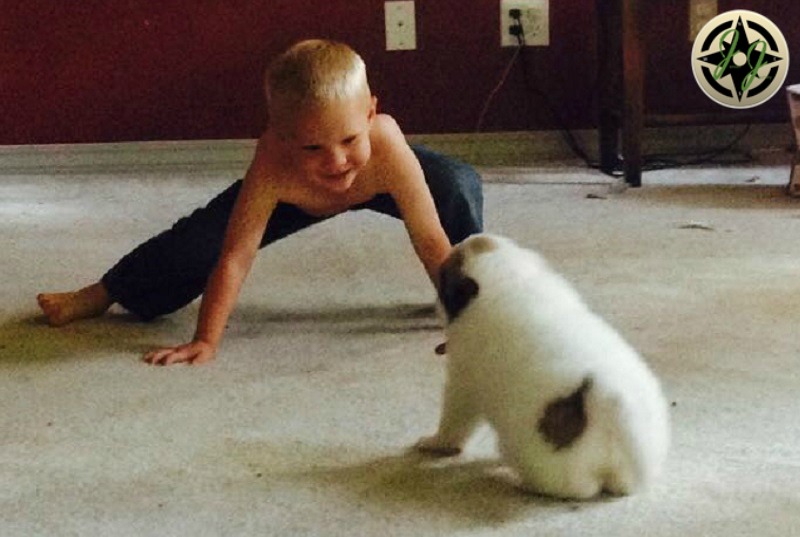So for the first time with this blog I’m going to talk openly about an LDS church policy/traditional/cultural norm. I hope this isn’t too off putting for some of you. Sunday in church I was part of a discussion of the appropriateness of certain discussions between kids and their Bishop.
Sunday School
The Sunday School lesson we were having led to a discussion on families and raising kids. Then we went into protecting kids from sexuality and such. It was kind of a discussion on how parents are responsible for teaching them VS. “it takes a village” mentality.
One man spoke up and said his bit about how we need to not assume kids aren’t hearing or talking about sexual activities. How Bishops have stopped asking IF they’ve seen porn, but rather asking what porn they’ve seen – they now assume everyone has seen it from somewhere.
Then he kind of generalized that we need to be discussing with kids the same things that they are hearing about from friends or media (movies/music/etc). He didn’t say it this way, but what that means is if they are hearing about “blow jobs” (or oral/anal sex, condoms, masturbation, etc) at school, then parents or leaders need to be able to use the term and talk about it with them. He didn’t use these terms in church, but that is what I believe he was trying to say.
STOP GENERALIZING!
And I agree with him. The LDS church has a cultural history of generalizing about sex and not really speaking to kids about these issues. I’m not sure if a leader ever used the term “sex” when I was growing up, instead they’d just generalize and say things like “keep yourself clean” or “obey the law of chastity.” There was no specifics about anything.
I don’t know if my leaders were embarrassed, or just naïve. But that lack of detail meant I was naïve as well until I experienced things for myself or had them described by classmates. That is poor preparation indeed.
Don’t believe me? Studies say that 80% of young kids don’t think of oral sex as “sex” at all. So if you aren’t specific with them, what do they know? Is “petting” such an obvious term that you think you don’t need to describe what that means? In a kids mind they could still be living the law of chastity and also regularly pleasuring their “partner”. That is a problem. We need parents AND leaders who can have these discussions with kids and tell them what is and isn’t acceptable.
Youth based magazines are publishing articles about explicit sexual acts (This Teen Vogue article for instance). As much as I love and support the ideal, our response can’t simply be “be virtuous.”
Bishops Interview
Back to Sunday School. After the one gentleman said his bit, another man spoke in an effort to agree that we can’t be vague with kids, only he went further. He said something along the lines of this:
Now days you even have pushback against Bishops. They say that Bishops shouldn’t be asking about specific sexual acts, saying that Bishops shouldn’t talk about that in interviews, but only be very basic. But that’s their job!
To this I couldn’t disagree more. I didn’t even raise my hand but just jumped in saying something along the lines of this:
I’m going to push back on that. My oldest is a 15 yr old girl. There is no way any middle aged man should be having sexually explicit discussions with her. In groups, fine. More explicit discussions, fine. But one on one? No way. Aside from asking about the law of chastity, no man should be questioning my daughter about explicit sexual acts.
Group vs One on One
While I think we DO need to be specific with our youth, and talk to them using the same terms they hear elsewhere, I don’t think it should be in one on one settings between youth and unrelated adults. Meaning a parent is fine one on one with their kid, but any other leader/adult better be in a group setting. Any church leader better be in a group if they are going to talk about explicit things like masturbation, anal/oral sex, intercourse, etc.
But what about worthiness interviews? Well, a Bishop needs to ask if they obey the law of chastity. That is part of their job. But questioning about specifics beyond that should be left out. If the kids answers yes, they live the law, then move on. If the Bishop is concerned for some reason that the youth might not realize what constitutes violation of this, then it better be explained in a group. When a youth answers no, they aren’t living the law of chastity, have a plan to involve someone else, preferably a parent.
I would totally support any Bishop who had a group event and told all of his youth, “When I ask ‘Do you live the law of chastity?’ I don’t simply mean ‘sex’ in the traditional sense.” and then went on to talk about the various other activities that would be chastity violations. Be blunt. Say things like, “Anal sex qualifies as sex, and needs to be confessed.” If we can assume they are encountering porn, we can assume they are hearing sexual terms that we MUST be prepared to talk about and give guidance about.
Parental Involvement
Also set another expection as well. Tell them, as a group, that if they come in to talk to you as the Bishop, answer No to the law of chastity question, and start confessing a sexually explicit event, then you are going to stop them and ask for permission to bring their parents in. There is no reason not to, other than being afraid a parent will be abusive upon finding out, and then that should be known and dealt with too! But get permission for someone else to be there, another Bishop or the SP if necessary, but don’t be alone!
There is no reason that confessions MUST be one on one! None. A confessor can have anyone with them. A parent, a leader, a friend. Anyone who helps them feel better and safer. The parents are going to be a youth’s best support moving forward anyway, so ASK to get them involved. If the kid refuses, fine, but TRY!
All explicit questioning for a simple worthiness interview should be off limits. Under no circumstances should a Bishop ask searching questions about explicit sexual activity from a youth on a one on one basis.
Outside the Norm
I know that this is outside the normal cultural happenings in LDS circles. But I don’t think I’m wrong. It should be easy to see that middle aged men should NOT be asking young girls explicitly sexual questions in settings where they are alone together. Give training and set expectations in a group, where kids are with their peers, and then when alone simply ask if they are following those guidelines already set out.
I recently read a harrowing account of an interview held very poorly.
“when will the Church finally stop having young women and young men face middle-aged or older men in private rooms for interviews about their sex lives? My youngest daughter refuses to go into a Bishop’s interview with our current Bishop because his questions were so intrusive.
I concur with his conclusion as well, “That form of interview is a form of sexual assault.” The type of probing questions asked as follow up are totally inappropriate as given in this account.
I don’t know if you all agree, but now you have my take on the matter.
Take-Aways
Get over the ridiculous notion that confessions need to be private one on one things… they don’t! Have another person there. A parent would be ideal. Don’t go into sexual details alone.
Be blunt, specific, and to the point, but do it in groups. Private settings between adult men and teenage girls isn’t the setting for talks about sex.
Be adult enough to have the discussions with all youth AND their parents. Set good expectations and boundaries so kids know what path any confession will follow.
Be open and truthful. There is no room for shyness or embarrassment in these discussions. These youth are becoming adults, show them how to have an adult conversation about adult topics while maintaining respect and worthiness. Model adult behavior.
Your thoughts?
Follow Up
Julie proof read this and brought to my attention that she has seen a petition going around asking the church to end these interviews all together. I assume that is what the gentleman I referred to was talking about when he said there is pushback against Bishops. I didn’t know about the petition, and therefore haven’t read the petition nor know if I agree with it.
It is a Bishop’s duty to ascertain the worthiness of his members, including the youth. It can’t be scrapped, but it can be improved. We are wrong to suppose that it must be done one on one. It doesn’t. Repentence doesn’t require it at all. The interviews must take place, but when it is known, or becomes known, that sexual activity is going to be discussed there is no reason another person (agreeable to the confessor) can’t be brought in.


In her last interview with him, he asked her “Do you keep the law of chastity? My daughter answered in the affirmative. He then asked follow-up questions about female masturbation, oral sex, etc. She felt cornered and trapped. She thought he was accusing her of those actions, that he did not believe her initial answer. It was days before I found out, she was depressed for days before she finally confided in her mother and myself.”